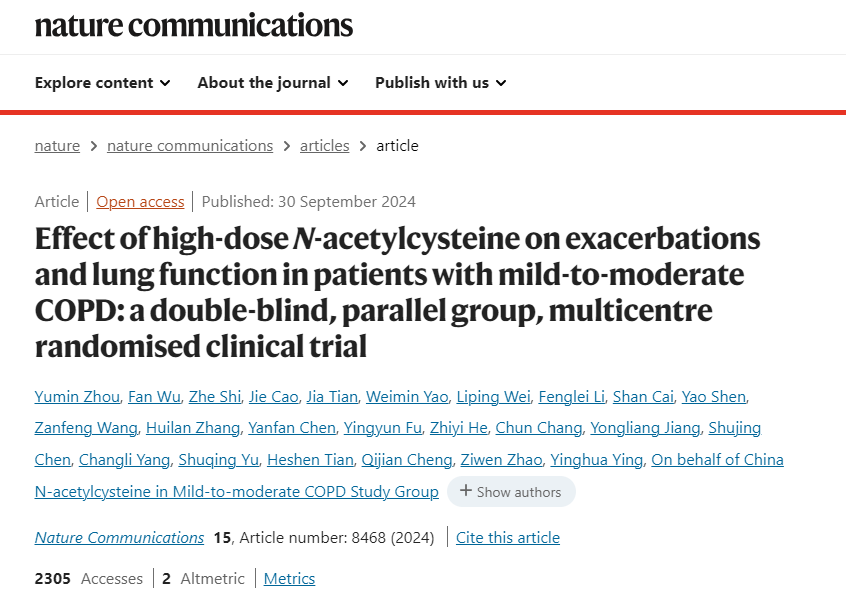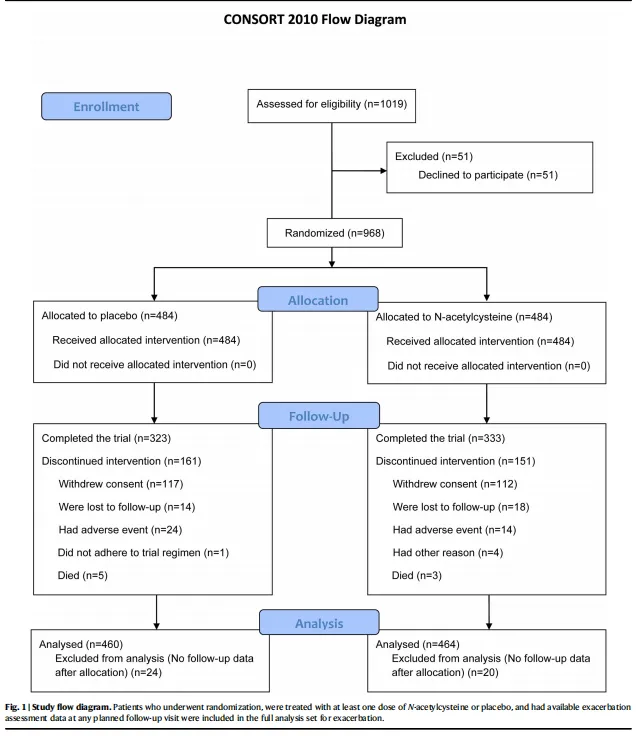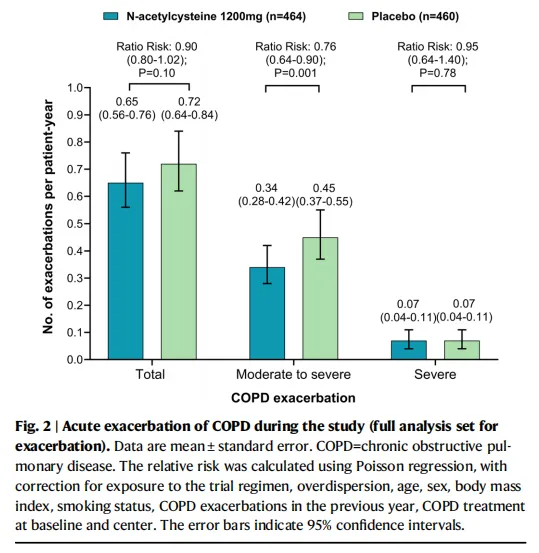
In October 2024, the results of a drug clinical trial on the treatment of patients with mild-to-moderate chronic obstructive pulmonary disease (COPD) using N-acetylcysteine, which was led by the team of Prof. Pixin Ran from the First Affiliated Hospital of Guangzhou Medical University / National Key Laboratory of Respiratory Disease / National Center for Respiratory Medicine / National Clinical Research Center for Respiratory Diseases / Guangzhou National Laboratory, were published in the Nature Communications. This study is another important piece of evidence-based medical evidence for the early treatment of patients with mild-to-moderate COPD.




Evidence for the treatment of patients with mild-to-moderate chronic obstructive pulmonary disease (COPD) is limited. The efficacy of N-acetylcysteine (an antioxidant and mucolytic agent) for patients with mild-to-moderate COPD is uncertain. In this multicentre, randomised, double-blind, placebo-controlled trial, we randomly assigned 968 patients with mild-to-moderate COPD to treatment with N-acetylcysteine (600?mg, twice daily) or matched placebo for two years. Eligible participants were 40-80 years of age and had mild-to-moderate COPD (forced expiratory volume in 1?second [FEV1] to forced vital capacity ratio <0.70 and an FEV1?≥?50% predicted value after bronchodilator use). The coprimary outcomes were the annual rate of total exacerbations and the between-group difference in the change from baseline to 24 months in FEV1 before bronchodilator use. COPD exacerbation was defined as the appearance or worsening of at least two major symptoms (cough, expectoration, purulent sputum, wheezing, or dyspnoea) persisting for at least 48?hours. Assessment of exacerbations was conducted every three months, and lung function was performed annually after enrolment. The difference between the N-acetylcysteine group and the placebo group in the annual rate of total exacerbation were not significant (0.65 vs. 0.72 per patient-year; relative risk [RR], 0.90; 95% confidence interval [CI], 0.80–1.02; P?=?0.10). There was no significant difference in FEV1 before bronchodilator use at 24 months. Long-term treatment with high-dose N-acetylcysteine neither significantly reduced the annual rate of total exacerbations nor improved lung function in patients with mild-to-moderate COPD.
